PAUL MURRAY: Tasmanian election fallout shows Labor knows Greens are threat to Federal election hopes
PAUL MURRAY: The decision not to try and form a government with the Greens in Tasmania was made with a far bigger picture in mind.
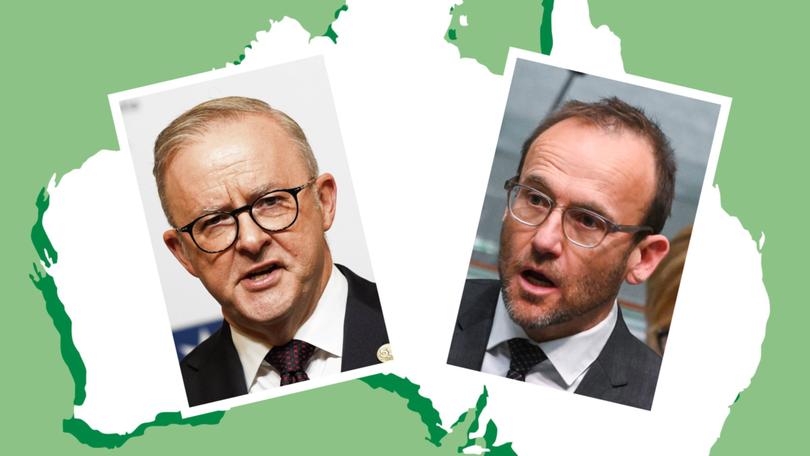
Imagine for a moment that Labor performed slightly better in last weekend’s Tasmanian election and instead of throwing in the towel on Sunday decided to try to form a minority government with the Greens.
They had been there before, more than once.
With the Greens potentially securing up to six seats in the new parliament, there was a pathway to a Labor-Greens government that might have been easier than the Liberals’ task of herding senator Jacqui Lambie’s three political novices and two non-conservative independents into something that looks credible.
Sign up to The Nightly's newsletters.
Get the first look at the digital newspaper, curated daily stories and breaking headlines delivered to your inbox.
By continuing you agree to our Terms and Privacy Policy.Sure, it might appear strange that Labor with only 10 or 11 of the House of Assembly’s 35 seats would form a government when the Liberals with potentially 15 could not. It would be up to Tasmanian Governor Barbara Baker to sort that out.
But the lust for power usually knows no shame.
There was technically, if not morally, a pathway to government for Labor even at 10 seats. And given that preferences won’t be distributed until April 2, there was no need to rush into a decision on minority government.
So why on Sunday morning did Tasmanian Labor’s executive committee over-rule party leader and three-time loser, Rebecca White, who on Saturday night had been as keen as mustard to hitch up to the Greens again, just like they did in 1989 and 2010?
You have to look no further than the looming Federal election for the answer.
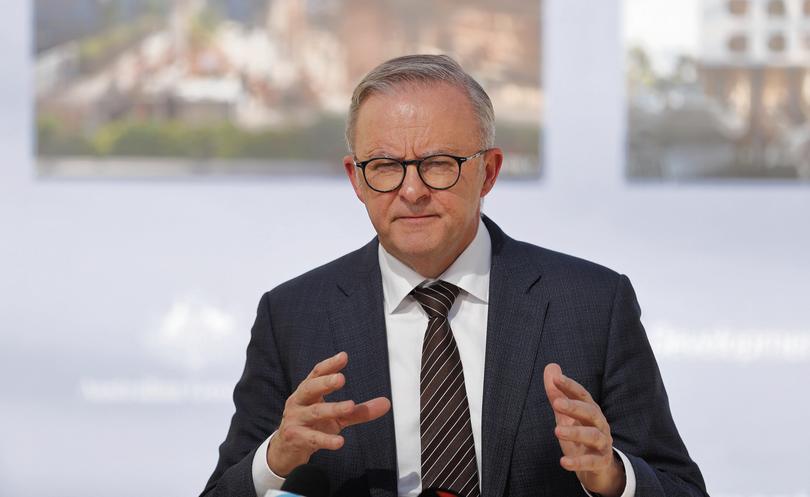
The 1989 Labor-Greens accord in Tasmania, as it was called, lasted 409 days and fell apart, not surprisingly, over forestry policy. Jobs versus trees.
“What destroyed the Labor-Green accord was the betrayal of the Greens by the Labor Party over resource security legislation,” said Christine Milne, then one of the five Greens in the Tasmanian Parliament.
But in 2010, the same thing happened when Labor and the Liberals each won 10 seats and the Greens got five in a 25-seat House. The Governor chose Labor.
It ended in tears in 2014 with a decisive Liberal win and the Greens all but wiped out after years of bickering and the sacking of their ministers from Cabinet.
Consider this. Would Anthony Albanese welcome a ticking time bomb in Tasmania pointing directly at his party’s unholy dependence on the Greens to form government anywhere in Australia?
Or would he rather forgo the ego-trip of coast-to-coast Labor governments for the first time since 2008 — if it meant avoiding that big green elephant in the room?
This week’s Newspoll led The Australian newspaper to conclude: “Federal Labor is drifting toward minority government at the next election with its primary-vote support now lower than at the last election.”
Australians need to think about parking their primary vote with fringe parties that will never lead a government and whose preference flows are probably unknown to them.
The poll showed Labor’s primary falling to 32 per cent, but the Coalition on 37 per cent still too low for it to form a government.
That raises the prospect of the political debate leading up to the next Federal election — which could be held as early as August — focusing strongly on questions of stability.
The optics of a minority Labor government in Tasmania being led around by the nose by Greens MPs would be wildly unhelpful for Albanese during an election campaign.
Most Australians remember what happened the last time that the Greens got their claws into a minority Federal Labor government. Julia Gillard was forced to break her promise made just five days before the 2010 Federal election that “there will be no carbon tax under the government I lead”.
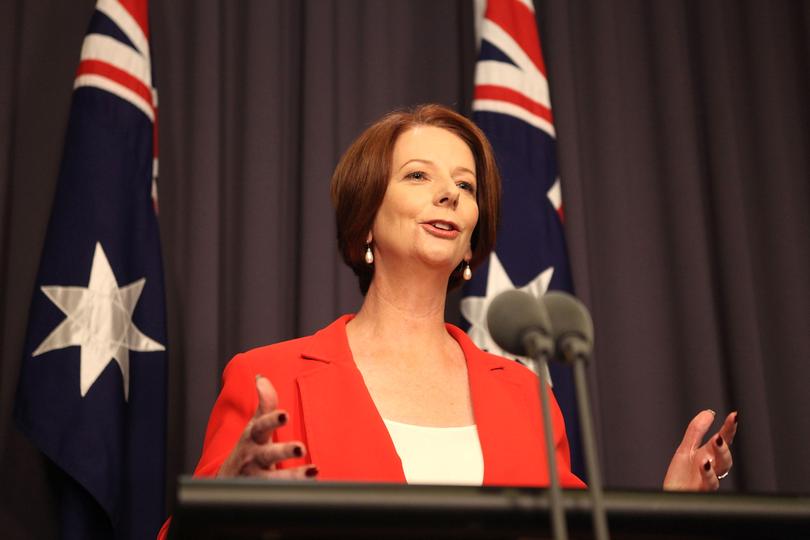
Shortly after forming Australia’s first national minority government since the 1930s, Gillard broke her word and instituted what she conceded was a carbon tax. Her government never recovered.
And who pushed her into going back on her word? Christine Milne and her Canberra-based Greens.
The same Christine Milne who had earlier helped kill off Kevin Rudd’s carbon pollution reduction scheme, with the assistance of Tony Abbott’s Liberals, because it wasn’t green enough.
The Greens signed a six-page agreement with Labor after the 2010 election delivered a hung parliament. It was the document that allowed Gillard to form a government.
Milne as Leader pulled the Greens out of that agreement in February 2013 — a little longer duration than her misbegotten 1989 deal in Tasmania — saying “the Labor Government is no longer honouring our agreement … to address climate change”.
So here we go again.
Albanese has to look no further than the current madness of the Labor-Greens government in the ACT — where he lives in the splendid isolation of The Lodge with his girlfriend and Toto the dog. It’s right under his nose.
To see what the Greens are like in government, you need to be following the latest developments in the ACT where the party dangerously holds the post of Attorney-General.
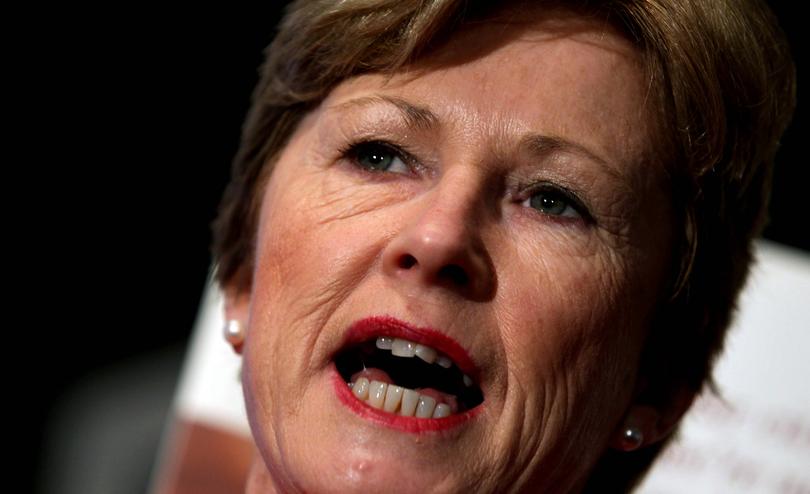
Shane Rattenbury is a model of Greens sensibilities and revelations in the past week about his interference with the territory’s independent Director of Public Prosecutions have been truly shocking.
The Australian reported that Rattenbury called the ACT’s acting DPP Anthony Williamson to a meeting at which he expressed concern that a number of recent sexual-assault prosecutions had been terminated.
Williamson was furious and let it be known. The newspaper noted “the long-standing practice in Australian jurisdictions is that the DPP does not account to the government of the day, but to parliament”.
Shortly after, Williamson was passed over when the DPP vacancy was filled. A DPP source said the termination of the cases came against the background of an ACT Labor-Greens Government that “at every opportunity makes it clear to all and sundry that it wants an increase in conviction rates for sex matters”.
Most informed readers know that the ACT Government was up to its ears in the political intrigues surrounding the #MeToo-influenced Brittany Higgins affair.
Rattenbury’s intervention with the DPP is the latest in a long line of bizarre ideological actions by the ACT Government, outlined in a column here last October.
“It has ignored police advice to not decriminalise hard drugs, banned gas from homes, imposed a rent cap, forced pet owners to keep their cats locked up 24 hours a day, installed speed cameras on 40km/h roads in the city centre and claims 100 per cent renewable usage despite drawing the bulk of its energy from the national electricity market,” according to one aggrieved Canberra resident.
So the chances of Tasmanian Labor’s decision not to pursue another messy coalition with the Greens may have been assisted by advice from Totoland.
But if you listen to Federal Greens Leader Adam Bandt you’d think his party was the big winner last weekend.
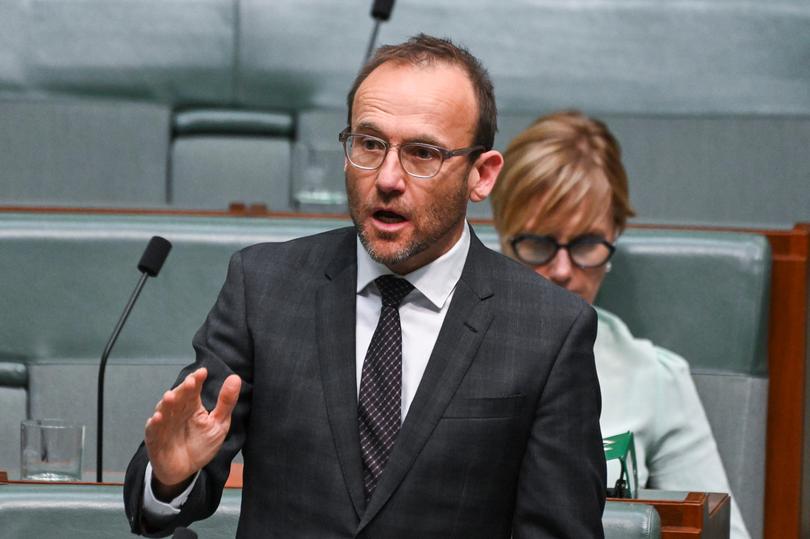
“What’s clear is that Greens will be powerful in the next parliament,” Bandt wrote on X. “Major parties can’t claim to represent the majority when they didn’t get the votes.”
What part of “loser” does Bandt not understand? Without Tasmania’s ridiculous Hare-Clark voting system — which it shares uncannily with the ACT — the Greens would have floundered to win anything, securing just 13 per cent State-wide against Labor’s 29 and the Liberals’ 37.
So, instead, Tasmania now faces a Liberal Government held to ransom by three political novices from the Jacqui Lambie Network — which polled only 6.7 per cent.
Senator Lambie is laughably offering Tasmanians “stability” by supporting a Liberal minority government, but immediately aimed her guns at Premier Jeremy Rockliff’s support for a $715 million football stadium in Hobart, a condition of the State’s licence for an AFL team.
Further complicating the issue is that one of her three likely MPs supports the stadium and the senator has promised to be hands-off on their policy decisions. Sure Jacqui.
On Thursday, her sole non-Jacqui JLN senator, Tammy Tyrell — the leader’s former office manager — quit the party after bluing with the boss. Stable as.
So while the Liberals face a dire future in minority government in Tasmania — just as Labor would with the Greens — Lambie is a political aggravation peculiar to that State alone.
The Greens threat to Labor is Australia-wide. And Albanese knows it.
Underlying the Tasmanian result is the ongoing crisis of confidence in the major political parties. “Two-party preferred” is becoming a bit of a misnomer. These days many people prefer anyone else.
The major parties need to reform themselves. While they fill their ballot papers with factional drones, not much will change. Both now favour candidates from the political elite rather than people with real-life experience.
But Australians also need to think about parking their primary vote with fringe parties that will never lead a government and whose preference flows are probably unknown to them.
Their “protest” eventually ends up electing someone. They have no control over who benefits.
However, we all get the weakened government such behaviour creates — and deserves.
This is an argument for voters placing their primary choice with the “less unlikable” of the two major parties that can and will form governments.
At least you know what you are getting. More or less.
Originally published on The Nightly
